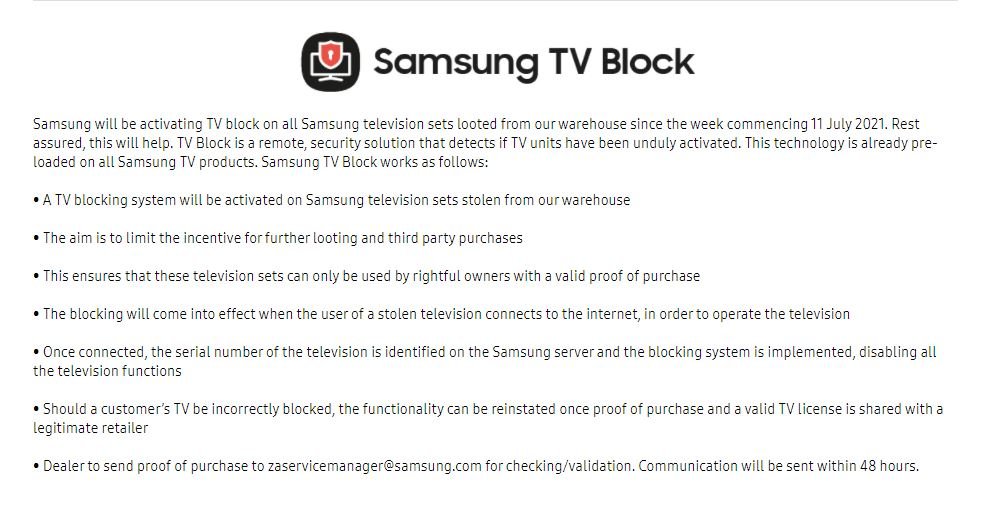In a recent statement, Samsung revealed to its customers that it is possible to disable any smart TV from the company with the TV Block feature. This is a little-known feature, so the company had to issue this message as a measure against the recent looting in some cities in South Africa.
The company mentions that this is a remote security feature to detect if these devices were improperly activated, in an attempt to ensure that Samsung’s smart TVs are only used by legitimate users: “The goal is to mitigate the creation of secondary markets linked to the sale of illegally obtained goods. This technology is already preloaded on all Samsung TV products.”

This feature is activated remotely on all televisions stolen from looted warehouses, and it is enough to send the serial numbers to Samsung servers. When these stolen devices connect to the internet, Samsung will check the list of stolen devices and disable all smartphone functions in case of finding a match.
As in any technological implementation, a device can be locked by mistake. In these cases, the full functions of the smart TV will be restored if the user requests it from the technical support area of the company, which can be done via email; the problems should be solved within 48 hours.
Mike Van Lier, Samsung’s chief consumer officer, said: “In line with our values of harnessing the power of technology to solve societal challenges, we will continuously develop and expand strategic products in our specially designed defense-grade security consumer electronics division with innovative and intuitive business tools designed for a new world.”
While Samsung says TV Block is an innovative feature with demonstrable positive results, the cybersecurity community believes it would be possible for threat actors to gain access to these block lists and perform malicious actions. Samsung has not commented on the matter, although it is expected that the necessary measures will be implemented to mitigate this risk.
To learn more about information security risks, malware variants, vulnerabilities and information technologies, feel free to access the International Institute of Cyber Security (IICS) websites.

He is a well-known expert in mobile security and malware analysis. He studied Computer Science at NYU and started working as a cyber security analyst in 2003. He is actively working as an anti-malware expert. He also worked for security companies like Kaspersky Lab. His everyday job includes researching about new malware and cyber security incidents. Also he has deep level of knowledge in mobile security and mobile vulnerabilities.











